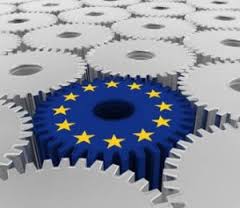Biotechnologies are more and more developing themselves and find application in many different sectors, until to represent a growing branch of great interest for Italian industrial and innovative placement.
What’s the contribution offered to bio economy and what kind of possible developments in the future? We asked it to Giulia Gregori, member of Assobiotec Federchimica Presidency’ Committee and General Secretary of Chimica Verde Spring’ technological Cluster.
“Bio technologies are the central nucleus of bio economy that helps the land to regenerate and can contribute to give an answer to big global challenges, represented by climate change, scarcity of resources, green house gas’ emissions or from the growing desertification of soils, addressing the present model of linear development toward a circular approach, with low carbon emissions and efficient in terms of resources, always more and more linked to local areas. It’s a model that already today creates richness and new work places starting from the rural and coastal areas”.
By your report: “Le imprese di bio tecnologia in Italia – Facts and Figures”, we deduce an important development of technologies in farming industry too, both in optimization of plantation and in accurate management of plants’ growth. Is it also a central element for the development of bio technological branch?
I believe that biotechnologies’ theme in rural field, as we managed and lived it in the last twenty years, it belongs to a very far age. Nowadays, biotech’ contribution may be totally different and very important. Thank to their application, is possible to make more resistant the vegetal varieties defending bio diversity, to increase productions without increasing farmed surfaces, reducing water’ consumption in farming and the effects of parasitic’ attacks and environmental adversities, characterizing food, guaranteeing through genetic digital print the origin, composition, real features, to protect the consumer even from contaminations… So, there are many and precious advantages offered by biotech’ technology to the development of this sector. And surely represent an important resource to face the challenges for food safety and for an adequate nutrition from qualitative and nutritional point of view worldwide. The availability of advanced methods for genomic investigation and the capability to sequence/resequence the entire genome of the interested species, with the chance of intervening with precise techniques of genome editing, have in fact opened really promising scenarios to improve production and products (food and nutrients) and represent an important and strategic opportunity for the economical development of the country.
Bio economy in Italy is bringing an important industrial’ growth and it’s specializing skills , that’s why we’re an excellence in this sector. Can we expect that by this branch will start a countertrend of “brain drain” from the country?
Italy is the third country in Europe, after Germany and France, in bio economy, with 260 billions of Euros in value. It’s a very important meta sector that, especially in our country, created very innovative and systemic models, sustainable and competitive at the same time, looked with strong interest all over Europe (let’s think, for example, to the concept of bio refinery integrated in the territory, with supply chains starting from agriculture to create innovative products able to transform environmental problems in opportunities, born right in our country).
Italy, since April 2017, provided itself of a national Strategy on bio economy, pointing on a leading role in euro Mediterranean scenario, with a very tough target: reaching 300 millions (billions, forse refuso, considerando il numero di lavoratori impiegati) of Euros in turnover and more than 2.000.000 of workers for 2030. So, an innovative sector promising new work for our youth.
There are, though, some needs in the sector about regulatory adaptation that prevent a total development of the branch, I think about the end of waste. Are you talking about this with the authority’s agencies?
Managing the end of waste in fundamental to realize concretely the circular economy. We have to more and more develop new ways of restoration and recycling, both from industrial waste and by urban waste. Of course, this entails the pertinent legislation’ development too. Industrial sector is occupied to face the Environmental Ministry and European Institutions.
Responsible Care, the volunteer program to promote sustainable Development of worldwide Chemical Industry.
Tuesday October 30th Federchimica showed the 24th Responsible Care report, a volunteer program to promote the Sustainable Development of worldwide Chemical Industry, following values and behaviors oriented to Safety, Health and Environment.
Let’s ask to Gerardo Stillo, Responsible Care’s President, what are the main goals obtained by the sector?
From the 24th edition of Responsible Care Report we received many confirmations: chemistry is a branch of excellence about safety and health of employees; we’re already in line with European Union’ targets about climate changes for 2020 and 2030; we reduced greenhouse gases for the 61% and improved energy efficiency for the 55% compared with 1990. Looking at 30 years ago, emissions in atmosphere and flowing in the hydro drains are drastically reduced, respectively of 95% and 78%.It’s a sector strongly busy to reach the new model of circular economy, foreseeing, as much as possible, to produce garbage, being the recycle the first way of removal (24%), while they turn to landfill only in the 9% of instances.
Per ricevere quotidianamente i nostri aggiornamenti su energia e transizione ecologica, basta iscriversi alla nostra newsletter gratuita
e riproduzione totale o parziale in qualunque formato degli articoli presenti sul sito.


















